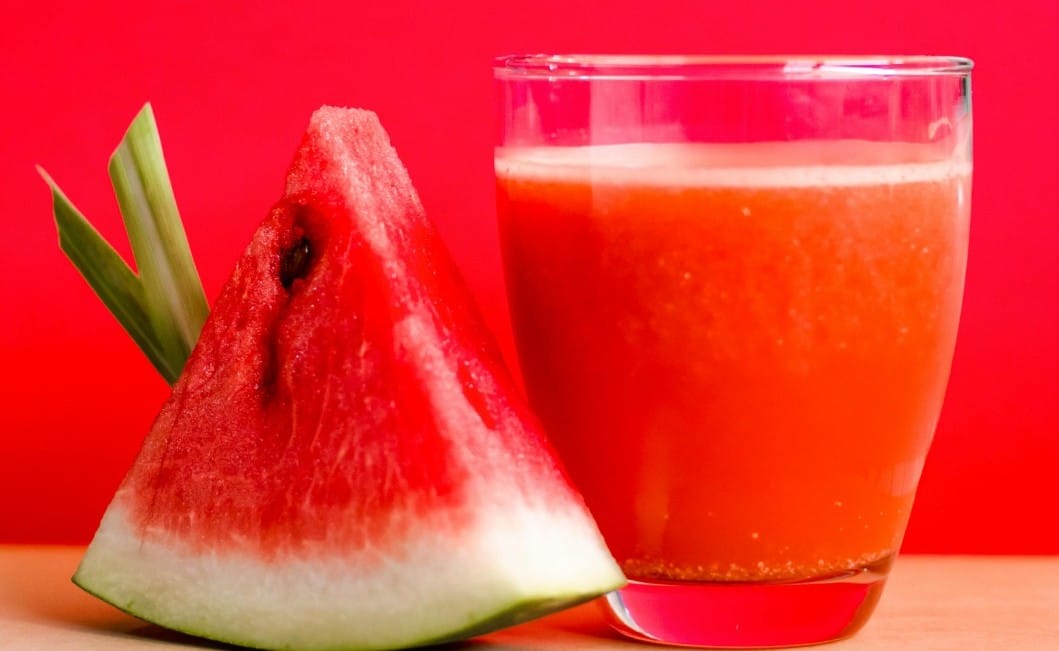Watermelon juice is the ultimate refreshing drink, especially during the hot summer months. Known for its hydrating properties and sweet taste, watermelon juice isn’t just a treat for your taste buds — it’s also packed with nutrients that can contribute to your overall health. In this blog, we’ll explore the nutritional profile, calorie content, and the incredible health benefits of watermelon juice.
Nutritional Breakdown of Watermelon Juice
Watermelon juice is naturally sweet and hydrating, offering a range of essential vitamins and minerals. Here’s a breakdown of the nutritional content of a typical 1-cup (240ml) serving of fresh watermelon juice:
- Calories: 90–100 kcal
- Carbohydrates: 24g
- Sugars: 18g (naturally occurring)
- Protein: 1g
- Fat: 0g
- Vitamin C: 25% of the daily value (DV)
- Potassium: 10% of the DV
- Magnesium: 4% of the DV
- Vitamin A: 6% of the DV
- B vitamins: 4% of the DV
Watermelon juice is primarily composed of water, making it an excellent option for hydration, especially on hot days. It’s also packed with antioxidants like lycopene, which gives watermelon its red color and has several health benefits.
Calories in Watermelon Juice
One cup of watermelon juice contains about 90 to 100 calories. While this is relatively low in calories, it’s rich in natural sugars, so it’s still important to consume in moderation. Fresh, 100% watermelon juice with no added sugar is the best option for those looking to enjoy the drink’s health benefits without extra calories.
Health Benefits of Watermelon Juice
Watermelon juice isn’t just delicious — it provides a variety of health benefits that make it an excellent addition to your diet. Here are some of the key advantages of drinking watermelon juice:
1. Hydrates the Body
Watermelon juice is made up of about 90% water, which makes it an ideal drink for staying hydrated. Proper hydration is crucial for regulating body temperature, supporting digestion, and keeping energy levels high.
2. Rich in Lycopene
Watermelon is one of the best sources of lycopene, a powerful antioxidant that has been linked to various health benefits. Lycopene is known to reduce oxidative stress and inflammation, and it may lower the risk of certain types of cancer, particularly prostate cancer.
3. Supports Heart Health
The potassium and lycopene found in watermelon juice help support heart health. Potassium helps regulate blood pressure, while lycopene can improve blood vessel function and reduce inflammation in the arteries.
4. Boosts Skin Health
The vitamin C in watermelon juice plays a crucial role in collagen production, which helps maintain the skin’s elasticity and reduces the appearance of wrinkles. The hydration from watermelon juice also helps keep your skin plump and glowing.
5. Aids Digestion
Watermelon juice contains fiber, which aids in digestion and promotes regular bowel movements. It can help prevent constipation and improve overall digestive health.
6. May Relieve Muscle Soreness
Watermelon juice has been shown to help reduce muscle soreness after exercise. The amino acid citrulline found in watermelon can increase blood flow and reduce muscle fatigue, making it a great recovery drink post-workout.
Conclusion
Watermelon juice is more than just a refreshing summer beverage. Packed with water, antioxidants, vitamins, and minerals, it offers numerous health benefits that can support hydration, heart health, and skin vitality. Whether you’re cooling off on a hot day or recovering after a workout, watermelon juice is a delicious way to nourish your body.
Pro Tip: For a tasty twist, try adding a splash of lime or mint leaves to your watermelon juice for an extra burst of flavor.
Make watermelon juice a regular part of your diet, and you’ll enjoy both its refreshing taste and its many health benefits!




